Ecosystems
-
 Animals
AnimalsRabbits leave a mark on soil long after they are gone
Twenty years after rabbits were removed from a sub-Antarctic island, soil fungus has yet to return to normal, a study finds.
-
 Animals
AnimalsCoral competitor becomes ally in fight against starfish
On the reef, algae compete with coral. But they may also protect coral from attacks by crown-of-thorns starfish, a new study finds.
-
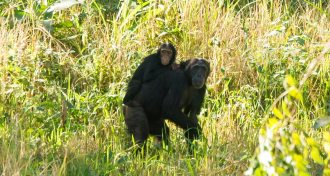 Animals
AnimalsChimps keep numbers high as forest losses mount
African apes show surprising resilience in face of forest destruction.
By Bruce Bower -
 Animals
AnimalsChimps keep numbers high as forest losses mount
African apes show surprising resilience in face of forest destruction.
By Bruce Bower -
 Animals
AnimalsA naturalist recounts birds’ lives in the Scottish Highlands
In Gods of the Morning, a naturalist chronicles how birds and other wildlife withstand the changing seasons in the Scottish Highlands
By Sid Perkins -
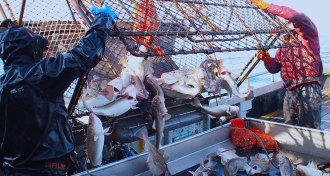 Animals
AnimalsSeeing humans as superpredators
People have become a unique predator, hunting mostly adults of other species.
By Susan Milius -
 Chemistry
ChemistryThree kids’ science books offer fun, fascinating experiments
No matter what interests kids, there’s a do-it-yourself science book for them. Here are three with entertaining and educational options.
-
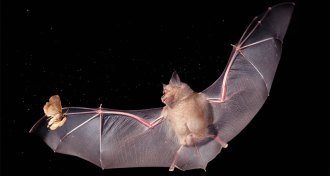 Animals
AnimalsLED lights make moths easy targets for bats
Bright LED lights may bewilder moths, making them vulnerable to predator attacks.
-
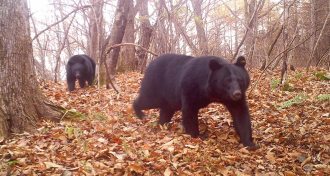 Animals
AnimalsHow bears engineer Japanese forests
In Japanese forests, black bears climb trees, breaking limbs. Those gaps in the forest provide light to fruiting plants, a new study finds.
-
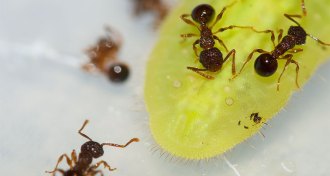 Animals
AnimalsCaterpillar treats and tricks ants by oozing spiked juice
Caterpillars ooze droplets that lure ants away from colony duties to instead lick and defend their drug source, new lab tests suggest.
By Susan Milius -
 Ecosystems
EcosystemsEncased algae create kaleidoscope of color
The skeletons of diatoms, algae that produce oxygen but also form toxic blooms, can create beautiful microscopic designs.
-
 Ecosystems
EcosystemsOcean food source lives by day, dies by night
The most abundant carbon fixer in the oceans lives by day, dies by night, and may be key to the balance of marine ecosystems.